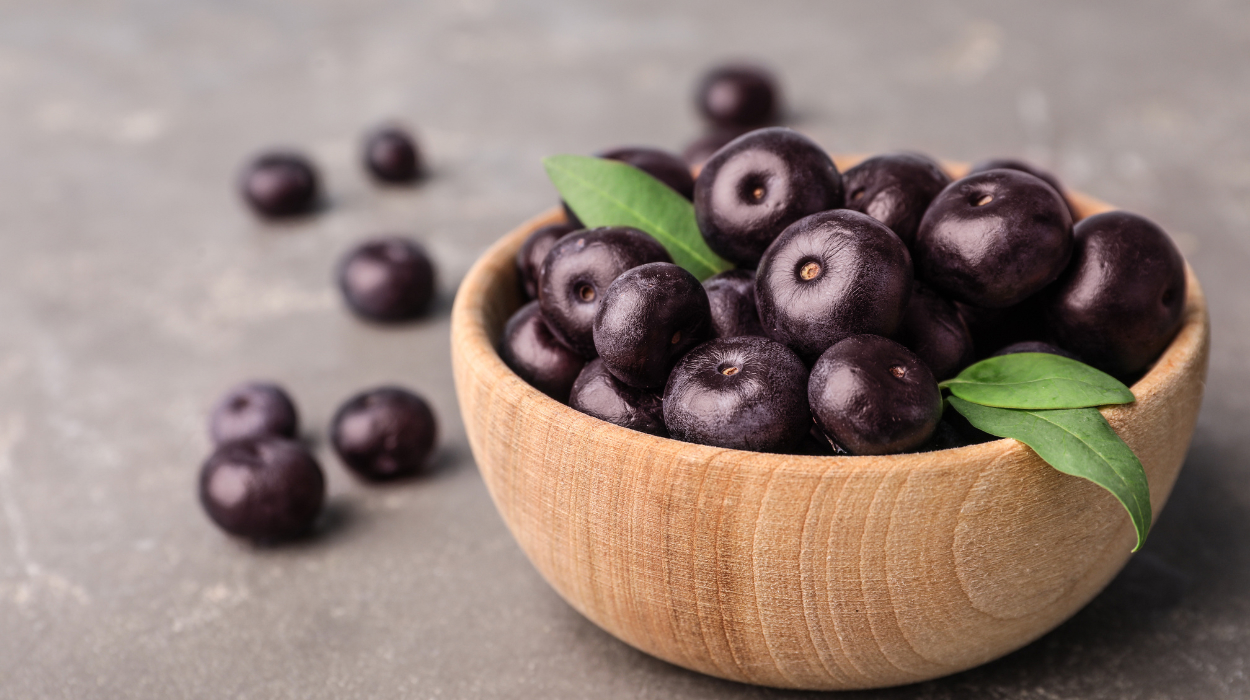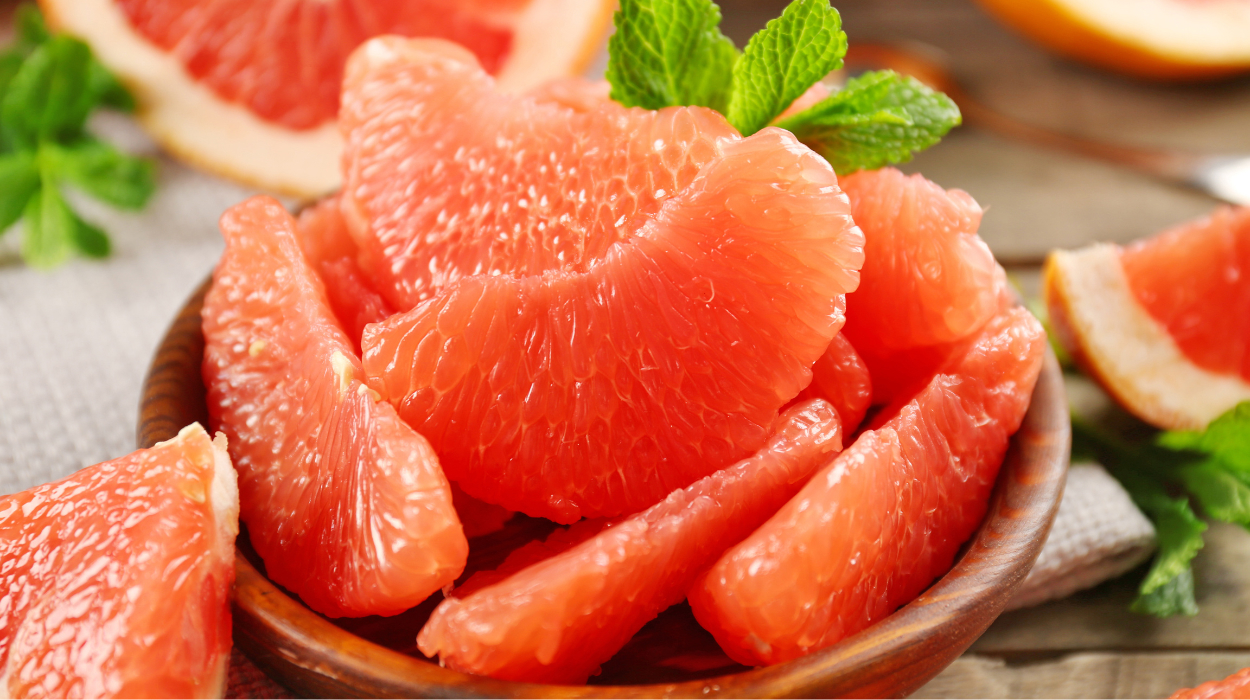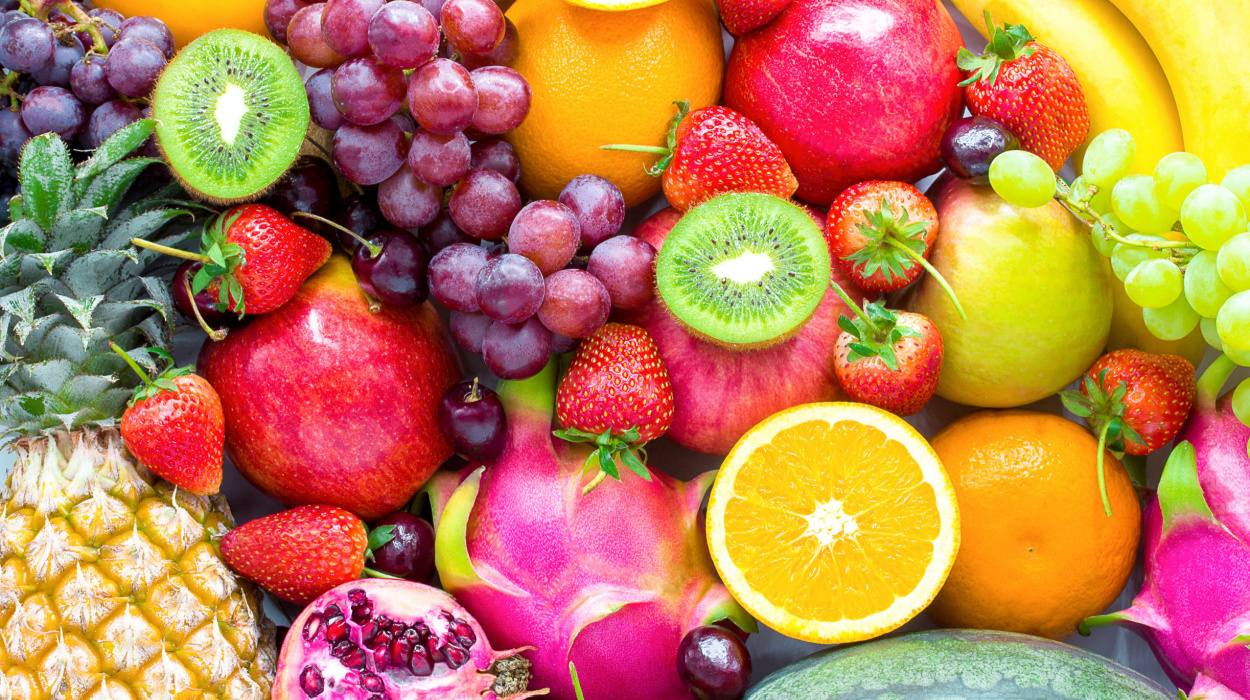As you stroll through the produce section of your local grocery store, you may notice a huge selection of fruits to try. With so many kinds of fruits available, what are the differences between some of these options?
Which are the healthiest fruits? Are there any fruits that can help with weight loss? How about benefits for things like heart health or cancer risk?
Fruits can be an excellent choice for your overall health. There are plenty of beneficial plant compounds to go along with those natural sugars. So, what are some of the healthiest fruits in the world, and what is it that makes them the best for you to eat?
10 Healthiest Fruits People Should Eat
As you peruse produce on your shopping run, keep an eye out for some fruits that offer a particularly high nutritional value. There are plenty of great options, and many offer benefits that extend beyond simply being a healthier option for a sweet snack.
Some of the healthiest fruits include:
- Acai berries.
- Apples.
- Avocados.
- Bananas.
- Blueberries.
- Grapefruits.
- Mangoes.
- Peaches.
- Pomegranates.
- Watermelons.
Top 10 Healthiest Fruits To Eat In 2024
When choosing foods to build a healthy, balanced diet, maximizing nutritional value while minimizing wasted calories can be helpful. This can cause some confusion because we have been conditioned to think of all simple sugars as being bad. Fruits certainly provide simple sugars, so it’s important not to go overboard, but they are also nutrient-dense.
Healthy fruits can provide a lot of the important nutrients we need in our daily diet. Some of these include:
- Vitamins.
- Minerals.
- Fiber.
- Antioxidants.
- Polyphenols.
Particularly nutritious fruits can provide a lot of value while being relatively low in calories. This makes them perfect for sugar cravings. In many ways, fruits are the best sweet treats to eat daily.
There are also a lot of examples of potential overall health benefits, including:
- Lower risk of heart disease.[1]
- Lower risk of cancer.[2]
- Promoting a healthy immune system.[3]
And remember to prioritize fresh fruits over canned to gain the extra fiber and health benefits. Frozen fruits without added sugar are also healthy options. Read labels for added sugars.
We’ve ranked some examples of the healthiest fruits available — let’s learn more about their health benefits!
Acai Berries

These berries have grown in popularity in recent years, partially because they are often referred to as superfoods. If you have never tried acai berries, they taste similar to blackberries but are a little less sweet. They have a somewhat grainy texture, and many people prefer to blend them into smoothies or create acai bowls mixed with nuts, granola, or other fruits.
Acai berries[4] contain polyphenols with antioxidant properties. Antioxidants are important for keeping the body stable as it responds to stress and can help prevent damage to cells caused by free radicals.
While placebo-controlled studies are lacking, there have also been some potential associations with improved blood sugar control[5] and markers for cardiovascular disease like cholesterol levels. Overall, acai berries can be an excellent addition to a balanced diet.
Apples
There is an age-old saying that ‘an apple a day keeps the doctor away.’ Avoiding the doctor may not be in your best interest, but taking advantage of natural health benefits in your diet certainly is. So, what makes an apple a healthy choice?
While not a citrus fruit, apples do provide a good source of vitamin C, which is helpful in supporting the immune system.[3] Apples are also a great source of polyphenols[6] and both soluble and insoluble fiber, which is helpful not only for gastrointestinal health but also for heart health and stabilization of blood sugars. Polyphenols are metabolites that offer a defense against free radical oxidation and aggression by pathogens while also offering protection against chronic degenerative diseases.
Avocados
At first glance, many people may not think of avocados as a fruit, but they are actually considered a large berry. Of all the nutrients provided by avocados, oleic acid, a monounsaturated fat, is often the most heavily touted. They are an excellent source of healthy fats.
Avocados[7] are also rich in folate, vitamins K and C, magnesium, and potassium. Clinical research has shown reductions in unhealthy cholesterol[8] in overweight and obese individuals, which can help protect your heart.
Bananas
The first thing that comes to mind when thinking about the nutritional value of bananas may be potassium. They are indeed a great source of potassium, but they also provide a solid amount of vitamins C, B6, and magnesium. Similar to apples, bananas can provide beneficial polyphenols and 2 grams of dietary fiber[9] that help support a healthy balance of gut bacteria.[10]
Blueberries
Blueberries are blue because of high levels of anthocyanins.[11] These act not only as pigments but also as important bioflavonoids with antioxidant properties. Blueberries have a particularly high level of anthocyanins, but there is also a significant amount in blackberries, cherries, and purple/red grapes.
The beneficial effects of anthocyanins[11] have been studied extensively. There have been links to potential benefits for:
- High blood pressure.
- Heart health.
- Brain health.
- Blood sugar control.
- Vision and eye health.
Grapefruits

Citrus fruits are known for their vitamin C content, and grapefruits are a particularly good source of other nutrients as well. Grapefruits also provide vitamin A, potassium, and dietary fiber. They provide great nutritional value while being low in calories and have been associated with lower BMI and cholesterol levels.[12]
If you take a prescription or over-the-counter medication, it’s important to be aware of potential interactions between medicine and grapefruit. Some examples of medications that are affected include those used to treat allergies, high blood pressure, and high cholesterol. Talk with your doctor or pharmacist about how your diet may affect your medications.
Mangoes
This tropical fruit can be eaten by itself or used to add great flavor to everything from salsas to salads. Mangoes are another great source of polyphenols like mangiferin[2] with anti-inflammatory and antioxidant effects. Some of the potential health benefits of mangiferin being explored in research include improved:
- Blood glucose control.
- Cholesterol levels.
- Cancer protection.
- Immune response.
Peaches
Many people immediately think of carrots as being particularly beneficial for vision, but peaches[13] offer some great benefits as well. They are a natural source of beta carotene, lutein, and zeaxanthin, which are each beneficial for eye health. In addition to dietary fiber, potassium, and vitamins A and C, peaches also provide ample vitamin E, which is crucial for healthy skin.
Peaches have phenomenal antioxidant,[1] antimicrobial, anti-cancer, and anti-inflammatory properties and are effective in warding off chronic age-related degenerative diseases. Their phenolic compounds offer protection against diabetes, hypertension, heart disease, neurodegenerative diseases, and obesity.
Pomegranates
Pomegranates have recently been celebrated as a superfood due to their antioxidant properties. Thanks to a high polyphenol content, there is a solid potential for both antioxidant and anti-inflammatory properties. This has caught the eye of clinical researchers, who have begun to explore whether pomegranate components may be helpful for managing inflammatory diseases.[14]
Studies have been largely inconclusive thus far, but research continues to explore the potential aid in managing:
- Asthma.
- Psoriasis.
- Inflammatory bowel disease.
- Rheumatoid arthritis.
Watermelons
True to its name, watermelons provide a comparatively larger amount of hydration than many other food choices. Since it also provides a good amount of potassium, it can be a great way to refuel if you’ve been sweating. Watermelon also provides a good source of magnesium, beta-carotene, and vitamins A and C.
Lycopene is a major contributor to watermelon’s lush red hue and provides some helpful antioxidant and anti-inflammatory benefits. Some of the potential benefits of lycopene[15] being explored in research include:
- Cancer protection.
- Blood sugar stability.
- Heart disease protection.
- Neuroprotective effects.
What Makes Certain Fruits Healthier Than Others?
Sometimes, what is considered healthy may vary depending on your needs. You may be most interested in losing weight, for instance. In this case, you will benefit from minimizing calories while maximizing nutrients. If preventing chronic diseases is your goal, choose peaches.
Perhaps you would like some additional support for combating the progression of macular degeneration. Peaches may be able to provide some of this support due to their zeaxanthin and lutein[16] content. Individual fruits have the potential to provide individual benefits.
In some cases, you may also want to add some additional support with over-the-counter vitamins. Plenty of fruit and vegetable supplements are available, with green powders becoming some of the more popular additions to general nutrition. The best green powder supplements are reliably sourced, provide a wide range of nutrients, and avoid going over your budget.
Is The Sugar In Fruits Good For You?
The sugar content of fruits can be a source of confusion. Ultimately, it’s helpful to be aware of sugar and calorie content and track them over the course of the day. Fruits do not need to be avoided simply because they contain sugar; just use moderation.
Many of the warnings associated with excess sugar intake are related more specifically to the abundance of added sugars in modern processed foods and sweetened beverages. Not all sugar is created (or manufactured) equally. For instance, much of what is added to processed foods is higher levels of fructose[17] than what typically occurs naturally.
This fructose content appears to be more closely related to metabolic concerns like weight gain or cardiovascular risk. So, while the natural sugar content provided by fruit can be healthy in moderation, it is also a wiser option than what is added to processed foods, such as high-fructose corn syrup.
Conclusion
Incorporating more fruit into your diet can be a great way to keep your diet balanced and satisfy your sweet tooth. There are some natural sugars to be aware of, but fruits also provide some great nutrients and health benefits. Regardless of whether you are trying to lose weight or take care of your general health, fruits fit perfectly in a well-balanced diet.
Frequently Asked Questions
There are many fruits with health benefits. Rather than focusing on one, keep things fresh by eating a variety! This will also bring more balance to your diet.
Any of the fruits on our list can be eaten daily. It can be helpful to track your calories and keep your overall diet balanced to promote healthy nutrition.
Just as there is no healthiest fruit, there is also no one fruit that could be considered the most important. Eating a variety of fruits enables you to receive a variety of benefits.
Many of the beneficial compounds are found in the skin of some fruits. When you eat mangoes or apples, eating the skin will provide additional nutritional benefits.
 Evidence Based
Evidence Based
